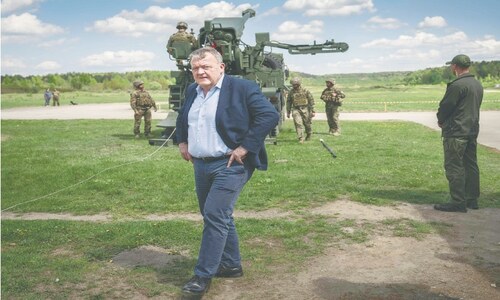SANAA: Rival groups battled in Sanaa for a second day on Friday in battles that have killed at least 120 people and have shaken the Yemeni capital with thousands fleeing their homes.
The violence raises fears that this chronically unstable country could be dragged into the sort of sectarian conflicts that have plagued other nations in the region.
Yemen has had years of turmoil and division, particularly a longtime battle with perhaps the most dangerous branch of the Al Qaeda terror network, separatist uprisings in the south and political upheaval that overthrew a longtime autocrat, all on top of deep poverty and tribal tensions.
But throughout, it had largely been spared Shia-Sunni hatreds like those that tore apart Syria and Iraq. Just under half the population is Shia, but they almost all belong to a unique version of Shiaism — Zaidi — which is seen as very close to Sunni Islam.
The two communities have long been intertwined in the political elite and military. For example, the former president, Ali Abdullah Saleh, ousted in 2012, was a Zaidi but most of his political alliances were with Sunnis.
In the past months, however, the Shia rebels known as the Hawthis have become one of the country’s most powerful players. They surged from their stronghold in the north, taking a string of cities and have fought their way to the capital, Sanaa. Their critics accuse them of being allied with Shia-led powerhouse Iran and of seeking to grab power in Yemen or carve out a Shia enclave in the north, claims the movement denies.Their main opponents have been Sunni hardliners — militias and army units allied with the Islah party, which is the Muslim Brotherhood’s branch in Yemen, or tribal fighters sympathetic with the Brotherhood or Al Qaeda. The government of President Abed Rabbo Mansour Hadi, an ally of the United States, appears largely caught in the middle between the two forces.
Meeting with foreign diplomats on Friday, Hadi described the Hawthis’ escalation in the capital as a “coup attempt aimed at toppling the state.”
The United Nations has been trying to mediate a political deal between Hadi and the Hawthis, who say they seek economic reforms and a new government. There has been talk for days of an imminent deal, even as both sides have built up forces in the capital. Even if a agreement is reached, “the hatreds now running deep because of the killings and the destruction between Sunnis and Zaidis could develop into sectarian violence,” said Abdel-Rahman al-Rashid, a Sanaa-based political analyst.
“Hawthis speak as if they are representing all Zaydis, while Muslim Brotherhood presents itself as speaking for the Sunnis. They are playing with fire.” Hawthi fighters on Thursday launched an assault on a Sunni hardliner stronghold in the capital, Iman University, which is seen as a breeding ground for militants.
Published in Dawn, September 20th , 2014

















































Dear visitor, the comments section is undergoing an overhaul and will return soon.